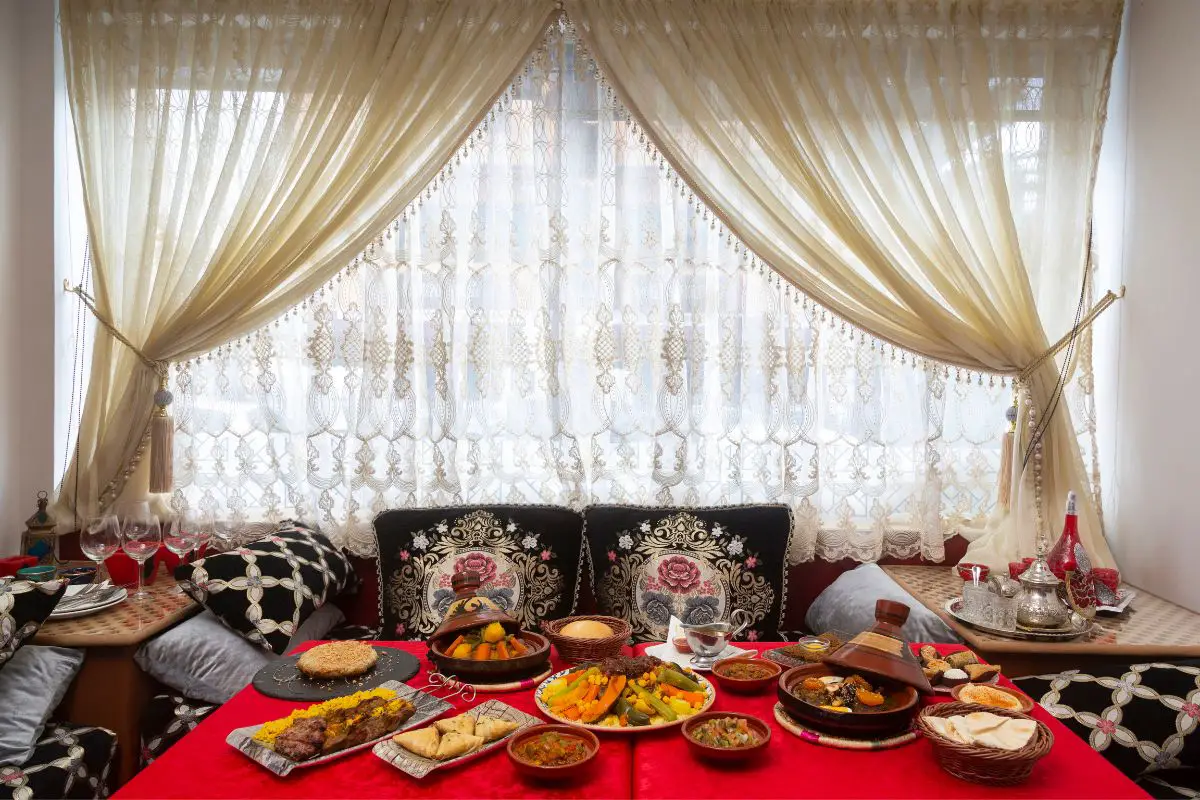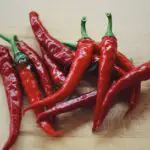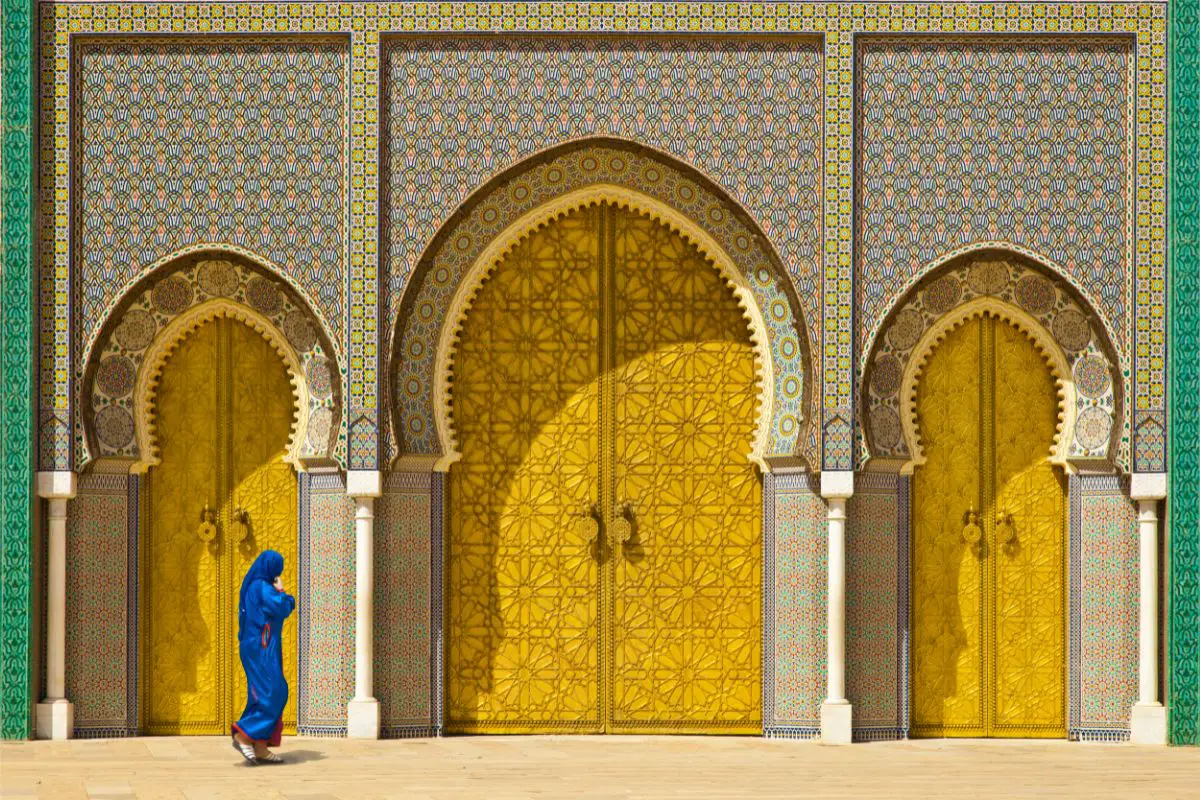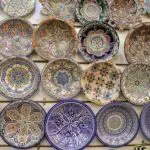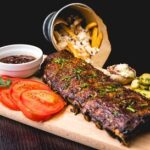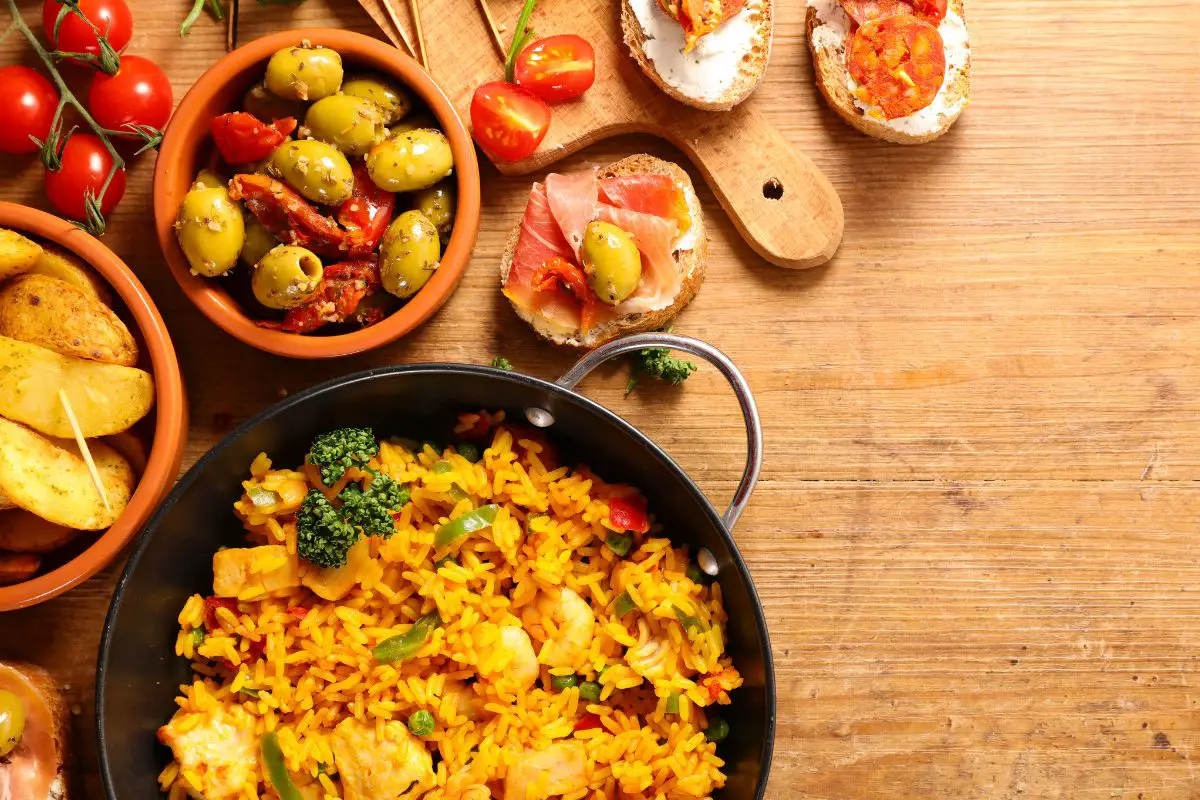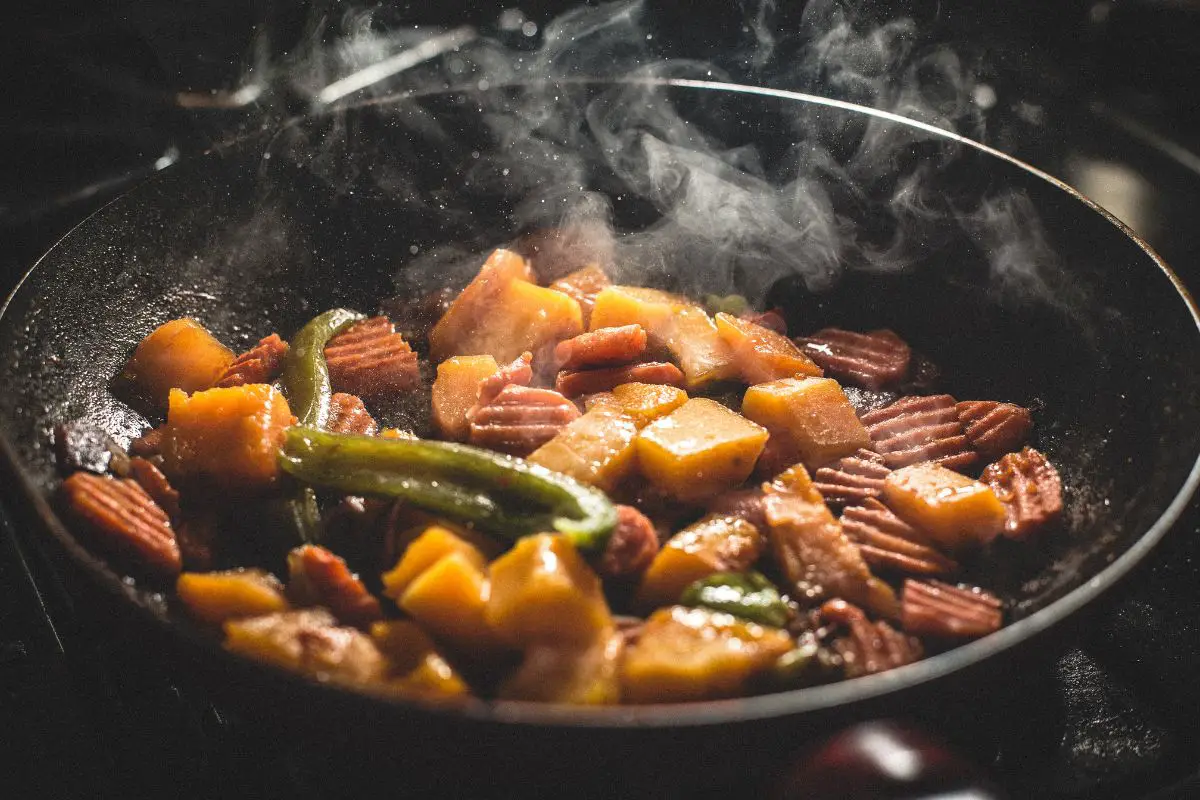The answer to this question depends on what you would consider to be spicy.
Authentic Moroccan recipes will use numerous spices like ginger, cumin, turmeric in their recipes.
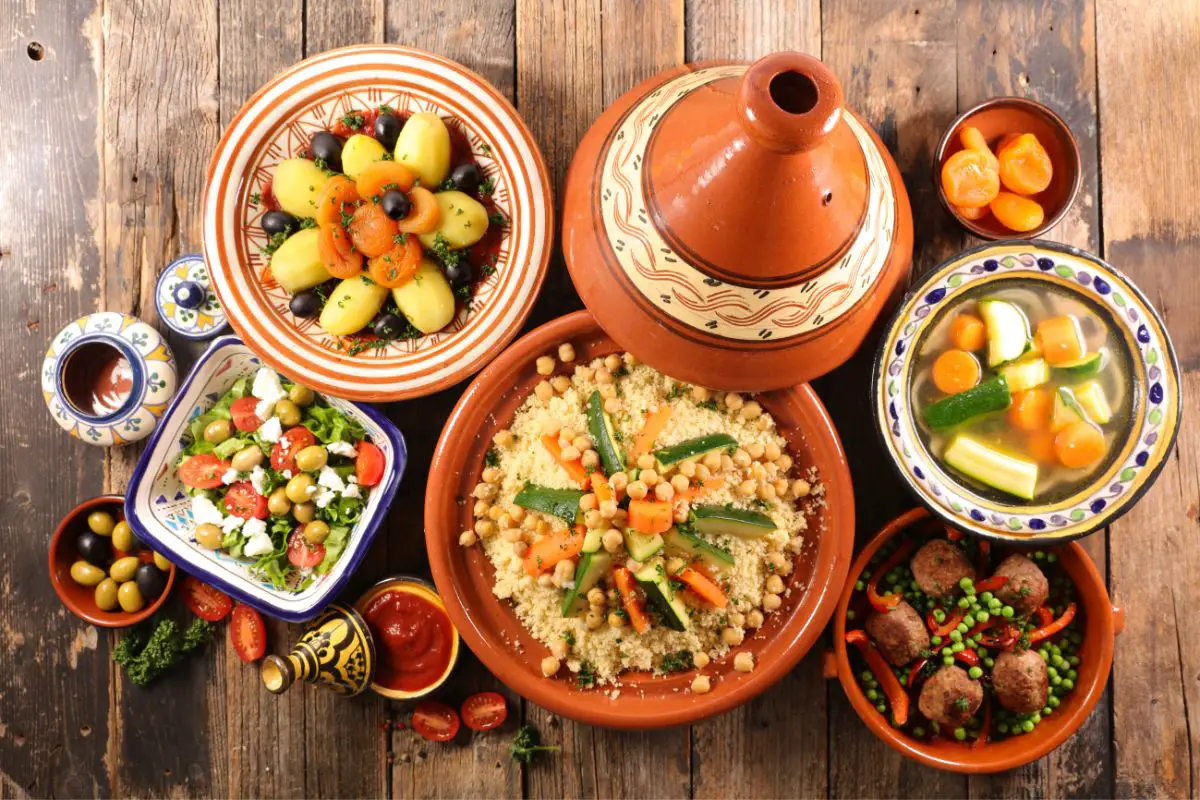
It is these spices that give Moroccan foods such fragrant, rich, and extensive flavors.
Therefore, if this is what you would personally determine to be spicy, then Moroccan cuisine is incredibly spicy as it uses a large amount of spices.
However, the majority of traditional Moroccan recipes are not spicy in terms of being hot.
Moroccan Cuisine And Hot Spices
Contrary to the cuisines of the vast majority of Arabic countries, Moroccan dishes are not spicy hot.
Hot spices are added in lower doses for additional punch, but never to the extent that they overwhelm the palate.
However, Moroccan cooks will commonly include a side of grilled hot peppers for those who are looking for an extra bit of spice.
There are some sauces that are spicier than others. One of the most infamous Moroccan sauces is the Moroccan Harissa sauce.
This is one of the most popular sauces that is used in Moroccan cuisine. Yet, comparatively to the traditional sauces of other Arab countries, it is far milder.
This allows you to enjoy your dish without being overwhelmed by heat.
If you are traveling to Morocco, the vast majority of restaurants will not serve hot dishes.
They will usually only serve mildly spicy dishes.
Thus, if you are dining at a Moroccan restaurant that is located both inside or outside of the country, you should ask for a side of hot pepper if you are looking for an added kick.
Spices Used In Moroccan Cuisine
Whenever we are discussing Moroccan cooking, the best place to start is with the spices that are used.
These incorporate the ancient spice route, adopting a vast array of global spices from traders across the globe.
These spices have ushered their way into Moroccan cuisine for many years, and thus, Moroccan recipes are layered with a varied range of tastes and flavors that can be sourced locally or abroad.
AS a rule of thumb, it is best to use these spices that have been freshly ground prior to cooking Moroccan dishes.
If you are purchasing spices, ensure that the pack is less than a year old to obtain the best flavor.
If you wish to cook in a similar fashion to the Moroccans, you should ensure that you have these spices in your spice collection:
- Saffron
- Turmeric
- Cumin
- Cardamom
- Ground Ginger
- Hot Peppers
- Paprika
- Cardamom
- Cinnamon
Key Ingredients In Moroccan Cooking
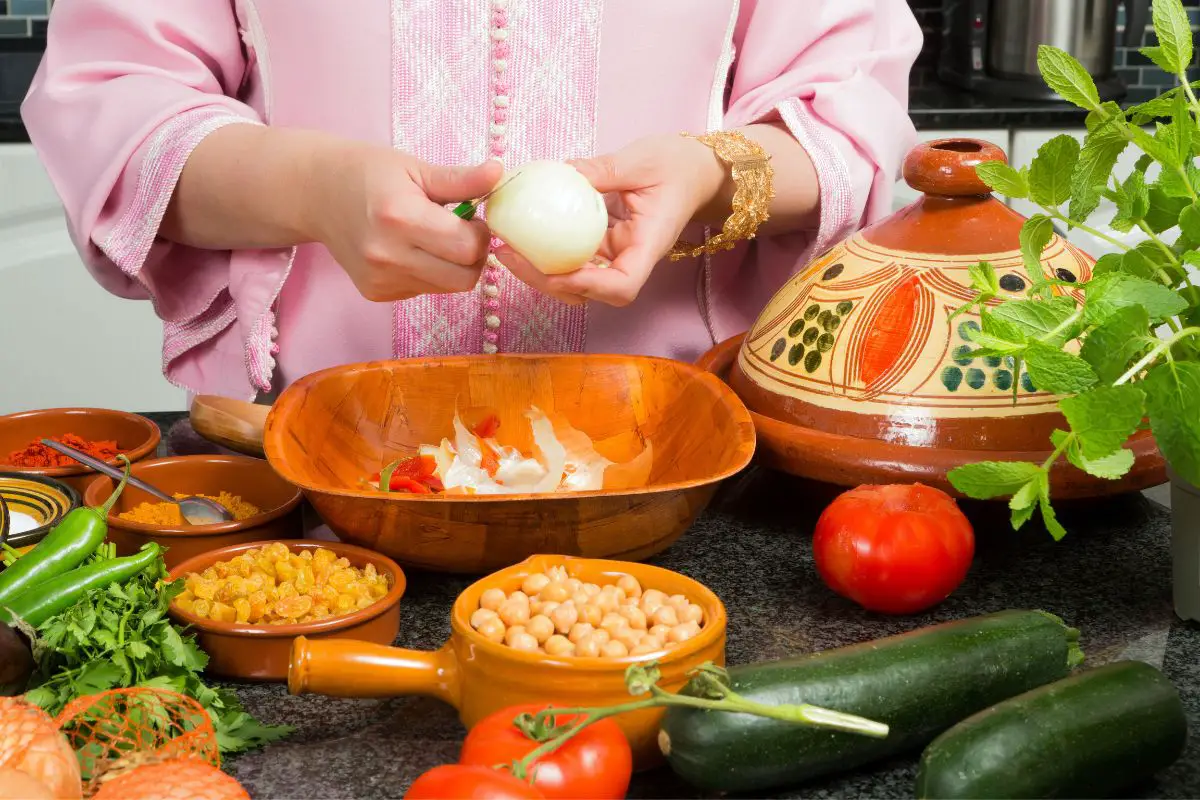
A blend of numerous spices provides Moroccan dishes with a uniquely intense flavor.
However, there are a few traditional ingredients that underpin these iconic recipes.
Visiting most households within Morocco, and you will certainly find the following ingredients that can be found within a range of traditional foods from flaky baklava to couscous.
These ingredients are as follows:
- Parsley
- Lemons
- Olives
- Meats
- Sesame Seeds
- Onions
- Cilantro
- Couscous
- Almonds
- Honey
- Onions
- Garlic
- Dried Apricots
- Raisins
- Figs
- Harissa
Iconic Moroccan Dishes
The ingredients and spices that I have listed above blend wonderfully together in order to create the most iconic Moroccan dishes that have been concocted in kitchens across Morocco for generations.
These flavors combine and blend into layers of complexity that reveal different sweet, spicy, earthy, and rich flavors.
These recipes are anything but bland and are some of the most renowned Moroccan dishes.
- Couscous. This is one of the most quintessential dishes that is associated with Morocco. It consists of small balls of wheat semolina that are streamed until they are perfectly fluffy. You will be able to find couscous in a wide range of salads and main dishes. It is also often served alongside spices, dried fruit, and vegetables.
- Tagine. This is one of the most iconic dishes. It is a slow-cooked stew that usually consists of chicken or lamb alongside a plethora of vegetables, nuts and spices that provide the utmost flavor. The slow cooking process ensures that the meat and vegetables are perfectly tenderized. This dish is perfect when served alongside a piece of freshly baked bread.
- Harira Soup. This tomato-based soup is wholesome enough to be filling on its own. However, it is often packed with vegetables, lentils and meat. It is often used to break fast during Ramadan due to its hearty, nutritious quality.
- Bastilla. This is a savory and sweet pie that is usually served at special events. It is normally made from pigeons. However, chicken is now typically used instead. The meat is shredded and mixed with beaten eggs and an array of spices, before being topped with crushed almonds and wrapped in a light pastry shell. A sprinkle of cinnamon and sugar on top provides the pie with an additional sweet flavor.
- Chicken with preserved lemon. This dish is usually cooked in a tagine. Its s stunningly bright in color due to the preserved lemons. There is also a good amount of salty kick included through the use of olives. This mixture of contrasting tastes blends perfectly during the slow cooking process in order to create a deliciously tangy sauce that can be accompanied by fully couscous or freshly baked bread.
Conclusion
To conclude, Moroccan food is not traditionally spicy in regard to being ‘hot’.
However, Moroccan cuisine incorporates a vast array of spices that perfectly fuse together to make traditional dishes like the ones that I have outlined above.
If you are looking to try spicy hot moroccan food, then you should ask for a side of hot peppers alongside your meal in order to obtain that added kick.
In comparison to the cuisines of other Arab countries, Moroccan food is not spicy hot at all.
Thus, you should not expect to be overwhelmed by the heat of the food when you are visiting this country.
- The Top Restaurants Specializing in Truffle Dishes - August 10, 2023
- Truffle Panna Cotta: A Decadent Dessert Recipe for Truffle Lovers - August 7, 2023
- Truffle Scrambled Eggs: A Luxurious Breakfast Delight - August 7, 2023

